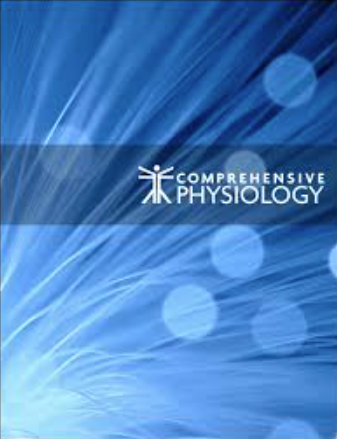下载PDF
{"title":"黄斑部一氧化氮合成酶 1 Beta 突变在调节肾小管反馈中的作用","authors":"Ruisheng Liu, Luis A Juncos, Yan Lu, Jin Wei, Jie Zhang, Lei Wang, En Y Lai, Mattias Carlstrom, A Erik G Persson","doi":"10.1002/cphy.c210043","DOIUrl":null,"url":null,"abstract":"<p><p>Abnormalities in renal electrolyte and water excretion may result in inappropriate salt and water retention, which facilitates the development and maintenance of hypertension, as well as acid-base and electrolyte disorders. A key mechanism by which the kidney regulates renal hemodynamics and electrolyte excretion is via tubuloglomerular feedback (TGF), an intrarenal negative feedback between tubules and arterioles. TGF is initiated by an increase of NaCl delivery at the macula densa cells. The increased NaCl activates luminal Na-K-2Cl cotransporter (NKCC2) of the macula densa cells, which leads to activation of several intracellular processes followed by the production of paracrine signals that ultimately result in a constriction of the afferent arteriole and a tonic inhibition of single nephron glomerular filtration rate. Neuronal nitric oxide (NOS1) is highly expressed in the macula densa. NOS1β is the major splice variant and accounts for most of NO generation by the macula densa, which inhibits TGF response. Macula densa NOS1β-mediated modulation of TGF responses plays an essential role in control of sodium excretion, volume and electrolyte hemostasis, and blood pressure. In this article, we describe the mechanisms that regulate macula densa-derived NO and their effect on TGF response in physiologic and pathologic conditions. © 2023 American Physiological Society. Compr Physiol 13:4215-4229, 2023.</p>","PeriodicalId":10573,"journal":{"name":"Comprehensive Physiology","volume":"13 1","pages":"4215-4229"},"PeriodicalIF":4.2000,"publicationDate":"2023-01-30","publicationTypes":"Journal Article","fieldsOfStudy":null,"isOpenAccess":false,"openAccessPdf":"https://www.ncbi.nlm.nih.gov/pmc/articles/PMC9990375/pdf/nihms-1875149.pdf","citationCount":"0","resultStr":"{\"title\":\"The Role of Macula Densa Nitric Oxide Synthase 1 Beta Splice Variant in Modulating Tubuloglomerular Feedback.\",\"authors\":\"Ruisheng Liu, Luis A Juncos, Yan Lu, Jin Wei, Jie Zhang, Lei Wang, En Y Lai, Mattias Carlstrom, A Erik G Persson\",\"doi\":\"10.1002/cphy.c210043\",\"DOIUrl\":null,\"url\":null,\"abstract\":\"<p><p>Abnormalities in renal electrolyte and water excretion may result in inappropriate salt and water retention, which facilitates the development and maintenance of hypertension, as well as acid-base and electrolyte disorders. A key mechanism by which the kidney regulates renal hemodynamics and electrolyte excretion is via tubuloglomerular feedback (TGF), an intrarenal negative feedback between tubules and arterioles. TGF is initiated by an increase of NaCl delivery at the macula densa cells. The increased NaCl activates luminal Na-K-2Cl cotransporter (NKCC2) of the macula densa cells, which leads to activation of several intracellular processes followed by the production of paracrine signals that ultimately result in a constriction of the afferent arteriole and a tonic inhibition of single nephron glomerular filtration rate. Neuronal nitric oxide (NOS1) is highly expressed in the macula densa. NOS1β is the major splice variant and accounts for most of NO generation by the macula densa, which inhibits TGF response. Macula densa NOS1β-mediated modulation of TGF responses plays an essential role in control of sodium excretion, volume and electrolyte hemostasis, and blood pressure. In this article, we describe the mechanisms that regulate macula densa-derived NO and their effect on TGF response in physiologic and pathologic conditions. © 2023 American Physiological Society. Compr Physiol 13:4215-4229, 2023.</p>\",\"PeriodicalId\":10573,\"journal\":{\"name\":\"Comprehensive Physiology\",\"volume\":\"13 1\",\"pages\":\"4215-4229\"},\"PeriodicalIF\":4.2000,\"publicationDate\":\"2023-01-30\",\"publicationTypes\":\"Journal Article\",\"fieldsOfStudy\":null,\"isOpenAccess\":false,\"openAccessPdf\":\"https://www.ncbi.nlm.nih.gov/pmc/articles/PMC9990375/pdf/nihms-1875149.pdf\",\"citationCount\":\"0\",\"resultStr\":null,\"platform\":\"Semanticscholar\",\"paperid\":null,\"PeriodicalName\":\"Comprehensive Physiology\",\"FirstCategoryId\":\"3\",\"ListUrlMain\":\"https://doi.org/10.1002/cphy.c210043\",\"RegionNum\":2,\"RegionCategory\":\"医学\",\"ArticlePicture\":[],\"TitleCN\":null,\"AbstractTextCN\":null,\"PMCID\":null,\"EPubDate\":\"\",\"PubModel\":\"\",\"JCR\":\"Q1\",\"JCRName\":\"PHYSIOLOGY\",\"Score\":null,\"Total\":0}","platform":"Semanticscholar","paperid":null,"PeriodicalName":"Comprehensive Physiology","FirstCategoryId":"3","ListUrlMain":"https://doi.org/10.1002/cphy.c210043","RegionNum":2,"RegionCategory":"医学","ArticlePicture":[],"TitleCN":null,"AbstractTextCN":null,"PMCID":null,"EPubDate":"","PubModel":"","JCR":"Q1","JCRName":"PHYSIOLOGY","Score":null,"Total":0}
引用次数: 0
引用
批量引用


